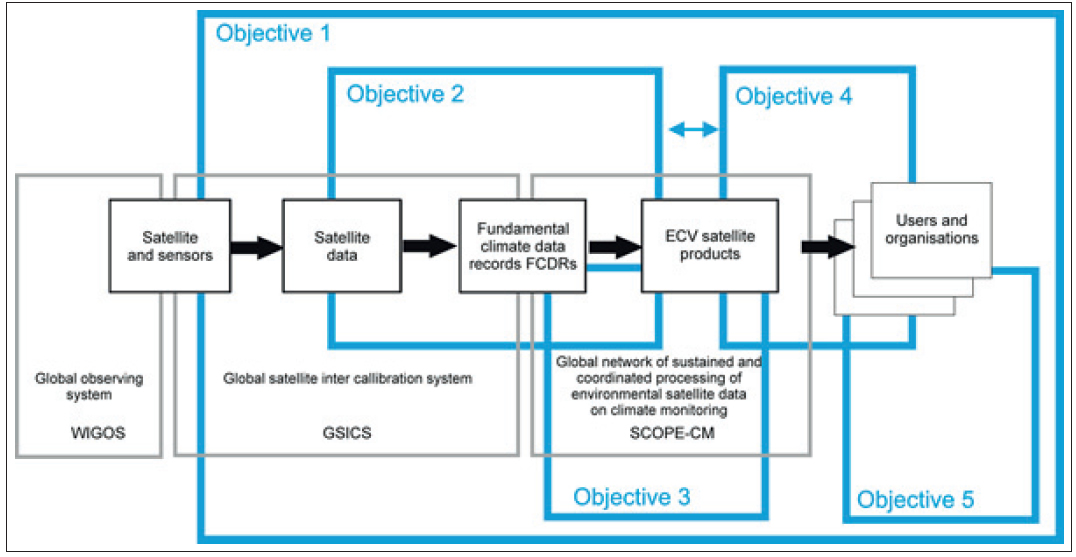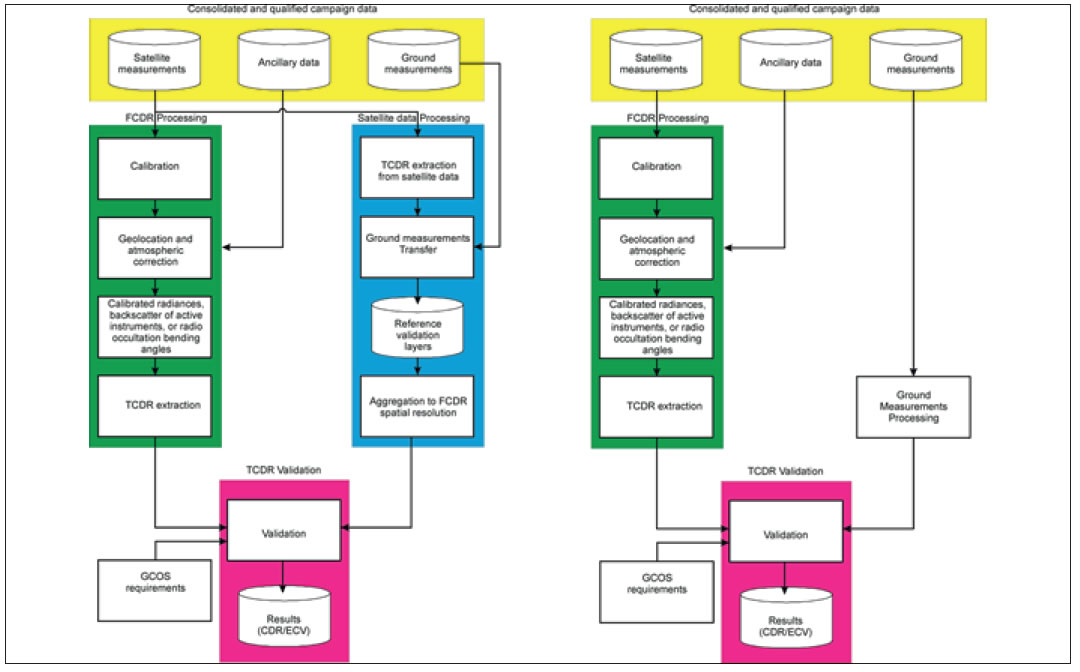Since reanalyses are important for improving and synthesizing historical climate records, and for providing regional detail in a global context necessary for policy development and implementation, CORE-CLIMAX will identify the integration of ECVs into the reanalysis chain by proposing a feedback mechanism ensuring that the results of the re-analysis process get appropriately reflected into updates of the ECVs. Together with inter-comparing different reanalyses, CORE-CLIMAX will contribute to establish a European truly coupled gridded re-analysis which incorporates full exchanges and interactions between atmosphere, ocean and land, including the hydrological cycle.

The specific objectives of the CORE-CLIMAX project are as follows:
- Coordinate with COPERNICUS on-going activities and contribute to the formulation of the COPERNICUS climate service theme
- Propose a structured process for delivering ECVs through the stepped and quality controlled elaboration of Climate Data Records (CDR), the latter being derived from prioritisation of the most appropriate input data sets
- Propose a validation process aiming at qualifying the accuracy of the climate variables (see figure below)
- Propose a feedback mechanism ensuring that the results of the re-analysis process get appropriately reflected into updates of the CDR
- Propose a process to compare reanalyses
The essential pre-requisite for the ECV satellite product generation is the availability of “Fundamental Climate Data Records (FCDR)”, which is internationally addressed by the collaborative efforts of the Global Space-based Inter-calibration System (GSICS), and the Sustained and Coordinated Processing of Environmental Satellite Data for Climate Monitoring (SCOPE-CM). CORE-CLIMAX will make European contributions to these efforts, with the five objectives embedded in these international efforts.


